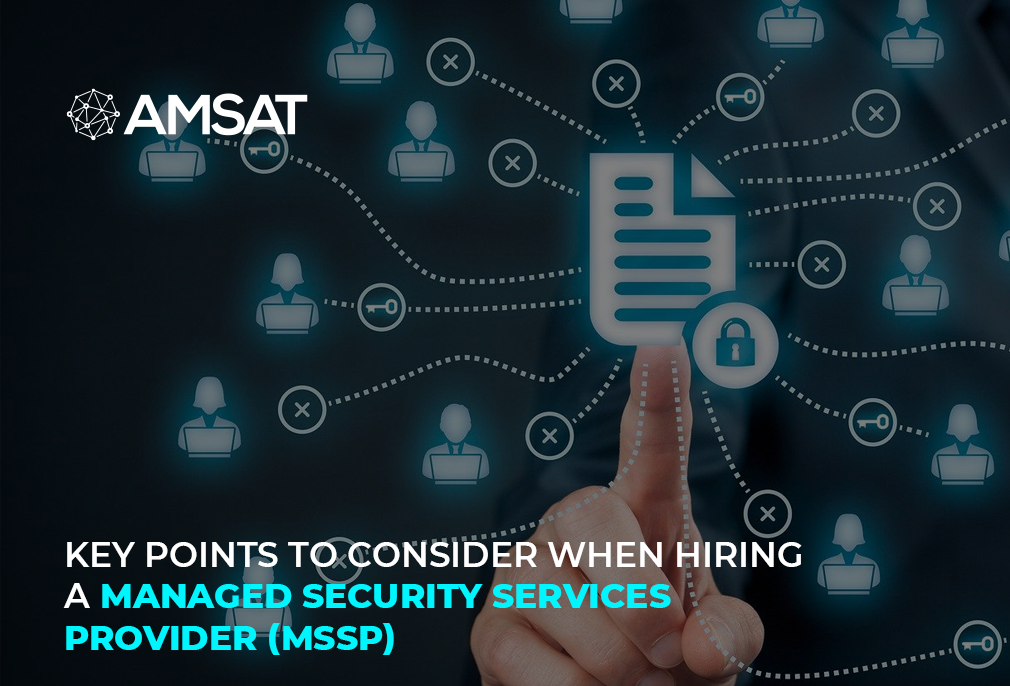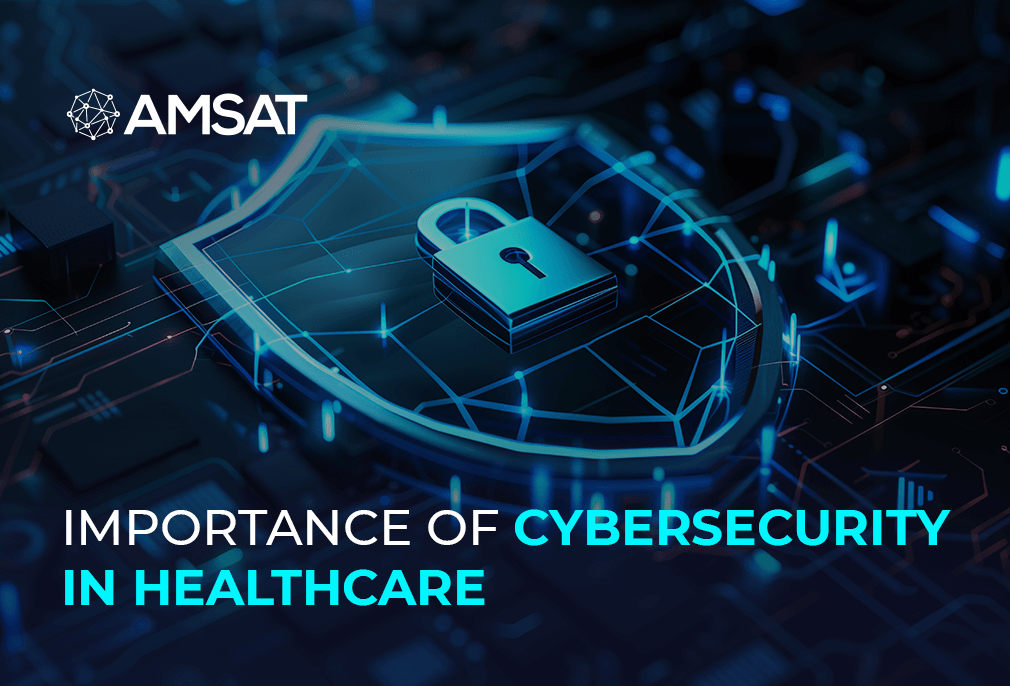Latest Blogs
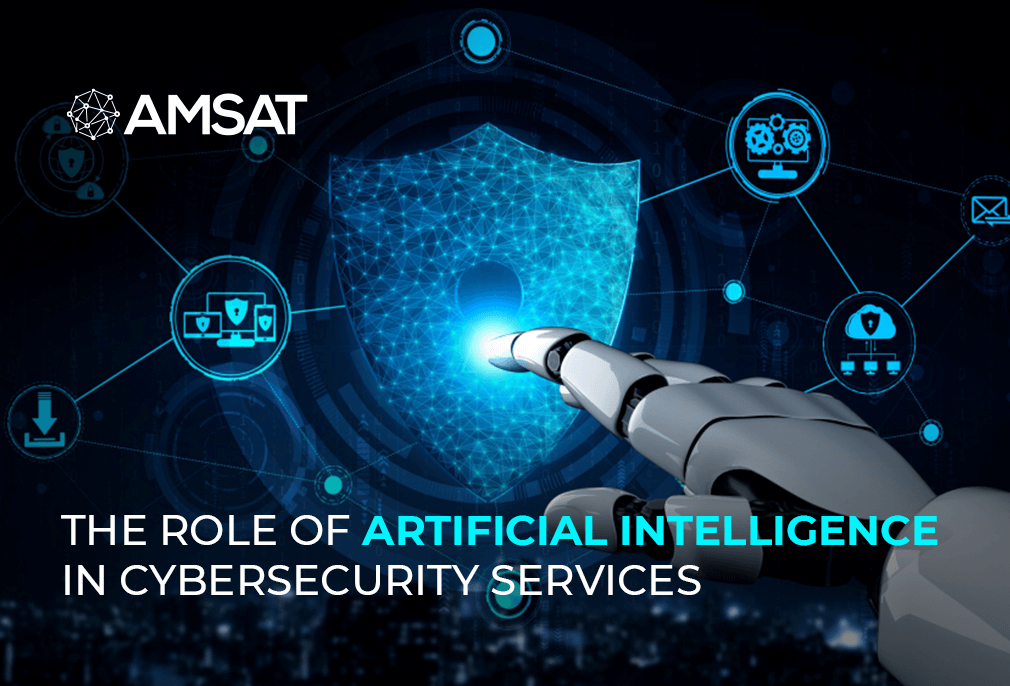
By AMSAT June 30th, 2025
The Role of Artificial Intelligence in Cybersecurity Services
As we are moving into a digital world with personal data stored online and the dependency of business on networks and cloud systems, cyber security has never been more important than now. However, as threats increase, we are needing even smarter defenses. That is where Artificial Intelligence comes not just as a catch-phrase but as a genuine game-changer in the field of cyber protection.
Let’s break down the role of Artificial Intelligence in cybersecurity, how it works, and why it’s becoming essential in modern-day digital defense systems.
What is Artificial Intelligence in Cybersecurity?
Before going deep into the throes, let’s first answer the most important question: What is artificial intelligence in cyber security?
To keep it simple, AI technologies such as machine learning, pattern recognition, and automation, are used in assisting and securing digital systems. AI and ML can process huge amounts of data, spot patterns of behavior that a human might miss, and act faster than any manual system could.
3 Mechanisms that AI Uses to Tackle Security
We already know how security professionals use AI to recognize complicated data patterns and provide operational recommendations. To ensure the best results, it uses three basic mechanisms to decomplicate any security concern or issue:
Pattern Insights
It is not humanly possible to recognize all data patterns within a security breach; it is inevitable that you will overlook some. However, AI is excellent at recognizing and categorizing data patterns. After detection, they give the information over to the security personnel to further analyze and examine.
Actionable Recommendation
Many AI agents are also utilized in this process. Professionals collaborate with these agents to get executable insights that help them take appropriate measures.
Automated Mitigation
Sometimes, the AI agents are programmed to take care of certain steps all on their own. This enables direct action from agents on the behalf of security professionals and they are able to adrees and rectify half of the issues automatically.
The Application of Artificial Intelligence in Cybersecurity
The application of artificial intelligence in cybersecurity spans several areas. The future of cybersecurity and its top trends are in AI, the multiple fields are:
AI for Phishing and Malware Detection
AI can analyze thousands of emails or files to detect suspicious patterns or malicious links. It learns from past phishing attempts to flag future ones more accurately. It can also work as the red and blue team to secure all cybersecurity ends.
AI in Network Security
AI keeps an eye on network traffic and flags unusual behavior in real-time. It’s like having a digital watchdog that never sleeps.
Real-Time Threat Detection Using AI
The traditional way is to detect threats after bleeding damage. On the other hand, AI power surveillance against threats can be detected and, in most cases, arrested before harm occurs.
Cybersecurity Automation with AI
AI automates such simple tasks like system patching, firewall updating, and alert responses, speeding up security processes and minimizing human error-related chances
Benefits of Artificial Intelligence in Cybersecurity
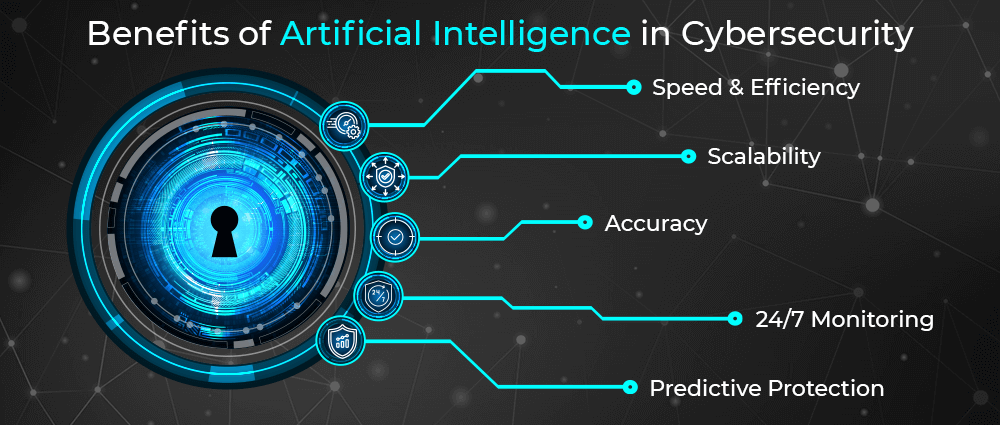
There are plenty of reasons why organizations are shifting to AI-based systems. Here are some benefits of AI in cybersecurity:
Speed & Efficiency
AI processes and reacts to threats in seconds, much faster than any human team.
Scalability
AI systems can monitor millions of endpoints and data points simultaneously. With endpoint and indicator lifecycle in cybersecurity, you can seamlessly scale without threats on either sides.
Accuracy
Machine learning for cybersecurity helps reduce false alarms and improve the precision of threat identification.
24/7 Monitoring
Threat actors don’t take breaks, and neither does AI. Artificial Intelligence improves your threat detection as well as response capabilities.
Predictive Protection
Unlike traditional systems, AI vs traditional cybersecurity methods means AI doesn’t just react, it predicts. It identifies patterns and anomalies that could point to future attacks.
AI-Based Threat Prevention Tools in Action
Today, many tools rely on AI-based threat prevention tools to protect everything from your smartphone to enterprise-level databases. These tools use artificial intelligence and machine learning in cyber security to:
- Identify insider threats
- Detect ransomware behavior
- Analyze security logs faster than human teams
- Isolate compromised devices before they affect the entire system
Popular antivirus software, firewalls, and even spam filters now use AI under the hood. It’s become the new normal.
AI vs Traditional Cybersecurity Methods
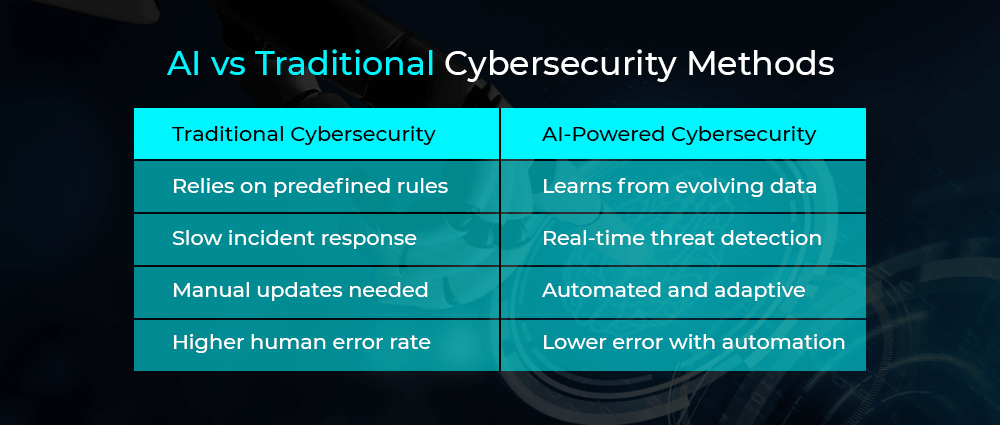
So how does AI compare to old-school cybersecurity?
Traditional Cybersecurity | AI-Powered Cybersecurity |
|---|---|
Relies on predefined rules | Learns from evolving data |
Slow incident response | Real-time threat detection |
Manual updates needed | Automated and adaptive |
Higher human error rate | Lower error with automation |
Traditional methods are still useful, but they often fall short when dealing with modern, sophisticated threats. That’s why AI and ML in cyber security are fast becoming the backbone of next-gen security systems.
Risks of Artificial Intelligence in Cyber Security
It’s not all sunshine, though. The risks of artificial intelligence in cyber security include:
AI being used by hackers: Just as defenders use AI, attackers can also use AI to create smarter, more targeted attacks.
- Over-reliance on automation: Too much dependence on AI can create blind spots if the system fails or is bypassed.
- Bias in algorithms: AI systems can sometimes inherit biases based on the data they’re trained on, leading to false positives or negatives.
That’s why human oversight and ethical AI development remain critical.
The Future of AI in Cyber Protection
Looking ahead, the future of AI in cyber protection is incredibly promising. As cyber threats evolve, AI will continue to evolve with them. We’re likely to see:
- Hyper-personalized security systems
- AI collaborating with human analysts (not replacing them)
- Predictive algorithms that prevent zero-day attacks
- Smarter identity verification systems
As AI becomes more advanced, it won’t just help us defend, it’ll help us outsmart cybercriminals before they even act.
Final Thoughts
The use of artificial intelligence in cyber security is no longer optional, it’s a necessity in all industries, whether its healthcare, real estate, or software. From detecting threats faster to automating defense strategies, the benefits of artificial intelligence in cyber security are transforming the way we protect our data and digital lives.
As we move forward, combining human insight with AI-enhanced security monitoring will be the key to staying one step ahead in this ever-changing digital battlefield.
Partner up with Amsat and our ingenious cybersecurity officials to safeguard your business and applications with top-notch protection.
Frequently Asked Questions
What is the best AI for cybersecurity?
There is no single best AI tool, as one might have requirements of their own. Some of the best-known solutions are IBM Watson for Cybersecurity, CrowdStrike Falcon, Darktrace, and Microsoft Defender for Endpoint.
These tools integrate AI and ML for threat prevention from the outset, detection in real time, and adaptive protection, all within the domain of cyber security.
Will AI replace cybersecurity?
No, AI won’t fully replace cybersecurity professionals. Instead, it acts as a powerful assistant. While cybersecurity automation with AI can handle many tasks, human expertise is still essential for strategy, oversight, and responding to complex incidents.
AI makes cybersecurity smarter, but not human-free, you will always require a human touch to be accurate.
TAGS
- Cyber Threats
- Cyber Security
- SOC
- Managed SOC
Recent Blogs
Ready to Get Started?
Our specialists are ready to tailor our security service solutions to fit the needs of your organization.
